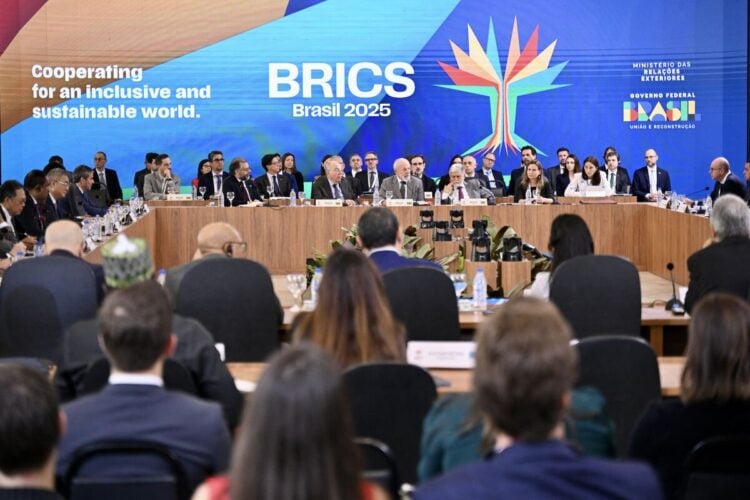Publisher: Maaal International Media Company
License: 465734
BRICS Aspires to Occupy Ground Vacated by US Under Trump
Ever since BRICS was founded more than a decade ago, the group of emerging-market nations has struggled to identify a common purpose. President Donald Trump’s tariffs may have solved that problem, Bloomberg reported.
BRICS leaders meeting in Rio de Janeiro this weekend for a summit hosted by Brazilian President Luiz Inacio Lula da Silva are expected to sign up to a joint statement decrying “the rise of unjustified unilateral protectionist measures” and the “indiscriminate raising” of tariffs. That’s what foreign ministers from the bloc named for oldest members Brazil, Russia, India, China and South Africa agreed to in April, and several officials said the text would remain in the communique.
The concluding language is unlikely to directly cite the US. But the group is sending an unmistakable signal to the Trump administration on the eve of the July 9 deadline for his levies to take effect.
اقرأ المزيد
BRICS members all agree that “these tariffs are not productive,” Ambassador Xolisa Mabhongo, South Africa’s lead negotiator, or sherpa, said in an interview. “They are not good for the world economy. They are not good for development.”
As Trump alienates traditional allies and pursues his America First agenda, BRICS is seeking to occupy the ground the US leader has ceded. The upshot is that the group long presumed to be forging an alternative to the US-led world order is now projecting itself as defender of those same core values, including free trade and multilateralism.
“Multilateralism is going through its worst moment since the World War II,” Lula said Friday during a meeting of the New Development Bank, the financing arm of the BRICS.
China will work with member states to “strengthen the BRICS strategic partnership and safeguard multilateralism,” Foreign Ministry spokesperson Mao Ning said in a briefing in Beijing on Wednesday.
Even with Trump providing some elements of a unity of purpose, the BRICS grouping is still likely to fall far short of wielding the global influence its members have long sought.
Chinese President Xi Jinping, who held a state visit to Brasilia in November and is expected to attend the COP30 climate summit in Brazil later this year, is skipping the BRICS meeting. Vladimir Putin of Russia will stay away to avoid putting Brazil’s government in the uncomfortable position of having to arrest a president wanted for war crimes in Ukraine.
Founded in 2009, the original BRICS group has long suffered from a lack of shared values among members who have little in common beyond their status as large, emerging economies that wanted a voice in global affairs dominated by Washington and the West.
Its rapid expansion to include Egypt, Ethiopia, Iran, Indonesia and the United Arab Emirates bolstered its representation — the new BRICS accounts for about 40% of global GDP and roughly half the planet’s population — but threatens to make it even less coherent.









